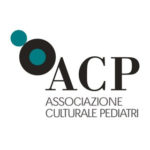
In absence of medical indications do not prescribe formula or liquids other than breast milk to newborns in the first weeks of life.
The duration of breastfeeding, especially exclusive breastfeeding, correlates positively with the present and future health of both mother and child. Exclusive breastfeeding in the first weeks of life is a positive long-term predictor of breastfeeding. Offering formula or fluids other than breast milk in the absence of medical indications disturbs the lactation calibration mechanism between mother and child , interferes with adequate breast milk production, and reduces the duration of exclusive and total breastfeeding . There are very few real medical indications for adding formula, the other difficulties can be overcome with the aid of competent support to exclusive breastfeeding.
Sources
1. Victora CG, Bahl R, Barros AJD et al. Breastfeeding in the 21st century: epidemiology, mechanisms, and lifelong effect. Lancet 2016;387:475-90
2. Vehling L, Chan D, McGavock J et al. Exclusive breastfeeding in hospital predicts longer breastfeeding duration in Canada: implications for health equity. Birth 2018;45:440-9
3. McCoy MB, Heggie P. In-hospital formula feeding and breastfeeding duration. Pediatrics 2020;146:e20192946
4. Kellams A, Harrel C, Omage S et al. ABM Clinical Protocol #3: supplementary feedings in the healthy term breastfed neonate. Revised 2017. Breastfeed Med 2017;12:188-98
Download
PDFAttention. Please note that these items are provided only for information and are not intended as a substitute for consultation with a clinician. Patients with any specific questions about the items on this list or their individual situation should consult their clinician.


Recent Comments